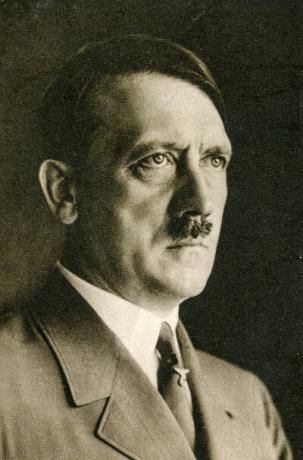at the end of the First World War (1914-1918), defeated nations were forced to sign agreements marked by the payment of large indemnities and the imposition of humiliating retaliations. Over time, instead of remedying rivalries, the fulfillment of these treaties determined the consolidation of a nationalist feeling aimed at the rematch, that is, the defeated nations, mainly the Italy and Germany, fostered the desire for a new conflict.
In general, the revanchist countries were taken by political tendencies that denied the balance and justice of the regime. liberal-democratic, attacked the effectiveness of capitalism and defended a frenzied sense of superiority in relation to the other peoples. Sympathetic to militarism, these political currents believed that their nations should to strengthen itself, aiming at conquering spaces that would be essential to conquering new times of prosperity.
Mind Map - World War II

*To download the mind map, Click here!
Germany
In Germany, this speech was strengthened by the actions of the Nazi leader
adolf hitler, which criticized the historical humiliations of the Treaty of Versailles and attributed the country's economic failure to the supposed malevolent interference of the Jewish community in the German economy. Coming to power through the vote, Adolf Hitler established a strong advertising of his regime, which was allied to the opening of several public works, which offered work to a large mass of unemployed.
Adolf Hitler was one of those responsible for the outbreak of World War II.
Italy
Among Italians, the similar situation of economic desolation opened the way for the organization of anti-democratic political tendencies that would come to fight the country's democrats and communists. Under the command of broken fascist, the Italian radicals managed to attract different sectors of the population and impose the arrival of the leader Benito Mussolini with the approval of the Italian parliamentary monarchy. In this way, yet another ultra-nationalist party came to power in Europe.
Great Britain and France
Even realizing such changes, considered serious in the European political scenario, Great Britain and France did not take incisive measures against the Nazism German and Italian Fascism. At first, the governments of such countries believed that the nazi-fascism could be useful in containing a possible advance of the communism in Europe. However, the totalitarians they aimed to put the territories and riches lost with the First World War in dispute once again.
On the one hand, we see that revanchism consolidated itself as a direct manifestation of the disastrous tone of the post-First War treaties. At the same time, the serious economic crisis that took hold in Europe - and which took on greater proportions with the 1929 crisis – fomented the inflamed discourse of totalitarian currents. Finally, the slowness of the great powers in stopping Nazi-fascism consolidated the scenario of tensions that anticipated the Second World War
_______________
*Image Credit:Everett Historical / Shutterstock
By Rainer Sousa
Graduated in History
* Mind Map by Daniel Neves
Graduated in History
Source: Brazil School - https://brasilescola.uol.com.br/historiag/a-segunda-guerra-mundial.htm
